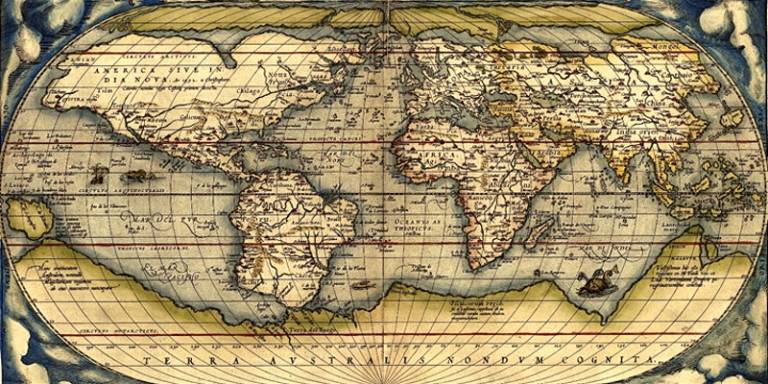POSTPONED: Are We There Yet? Renaissance Travels and the Invention of the Globe We Inhabit
19 May 2020, 6:30 pm–7:30 pm

This lecture has been postponed due to the coronavirus outbreak. The lecture will now take place in the 2020/21 academic year and tickets will be available nearer the time.
This event is free.
Event Information
Open to
- All
Cost
- Free
Organiser
-
Faculty of Arts & Humanities
Location
-
Gustave Tuck Lecture TheatreUCL Wilkins BuildingGower StreetLondonWC1E 6BT
Zoltán Biedermann, Professor of Early Modern History, UCL School of European Languages, Culture and Society (SELCS), delivers his Inaugural Lecture: Are We There Yet? Renaissance Travels and the Invention of the Globe We Inhabit
Can we truly inhabit the globe we call our home, or is it just too big a place for that? Scholars interested in the global inventions of the Renaissance have produced contradictory accounts: on the one hand, early modern travellers created an increasingly familiar picture of the world for their mostly European audiences; on the other, science and trade contributed to the soulless mathematisation and commodification of the planet, its peoples, and its resources. This lecture attempts to square the circle by exploring a set of maps, travel books, and other texts – some widely known, others less so – produced in European languages during the sixteenth and seventeenth centuries.
About the Speaker
Zoltán Biedermann joined UCL in 2013 to help set up the Portuguese and Brazilian Studies programme. He is the author of (Dis)connected Empires (2018), The Portuguese in Sri Lanka and South India (2014), Soqotra (2006), and the Atlas historique du golfe Persique (2006). He has also co-edited Global Gifts (2018), Sri Lanka at the Crossroads of History (2017) and From the Supernatural to the Uncanny (2017). His most recent, co-authored, book is 1535. It appeared in September 2019 with Portugal’s leading daily newspaper, O Público.
 Close
Close

